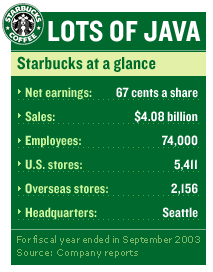
Playing Favorites
Week of Monday September 20, 2004
Lectionary Readings
Jeremiah 32:1–3, 6–15
Psalm 91:1–6 or Amos 6:1–7
Psalm 146
1 Timothy 6:6–19
Luke 16:19–31
My morning routine unfolded per usual. I rose at about 5:30, had my cup of coffee, ran, showered, and headed straight for Starbucks where I ordered a grande, triple shot latte for $3.45. For half of the world's 6 billion people, the cost of my latte constituted more than a day's wages. More than a billion people live on less than $1 a day. This half of the world suffers abysmally from the catastrophic consequences of poverty as measured by a broad array of similar indices—access to safe and dependable water, life expectancy, infant mortality, literacy, and so on.1
The Psalmist reminds us of the inseparable connection between knowing God and caring for the disenfranchised. There are many reasons to care for the vulnerable, but our ultimate motivation is based in the character of God Himself. In three short verses Psalm 146:7–9 reveals the tenderness of God for people who suffer. Notice the eight (!) different groups of people mentioned:
He upholds the cause of the oppressed
and gives food to the hungry.
The Lord sets prisoners free,
the Lord gives sight to the blind,
the Lord lifts up those who are bowed down,
the Lord loves the righteous.
The Lord watches over the alien
and sustains the fatherless and the widow,
but he frustrates the way of the wicked.
 About thirty years ago theologians and pastors who ministered in the half of the world I have mentioned coined a term to describe this essential aspect of God's character. God, these theologians insisted, was actually biased, even prejudiced. Far from being neutral or impartial, they argued that God had a "preferential option" for the poor. God played favorites, you might say, by bestowing special favor on the dispossessed. This was not a new idea. It is a prominent theme throughout Scripture, and commented on by early theologians like Tertullian (170–215) who believed that God had a "peculiar respect" for the lowly. Knowing God truly means caring for the people close to His heart. When we align ourselves with His cares we imitate His character.
About thirty years ago theologians and pastors who ministered in the half of the world I have mentioned coined a term to describe this essential aspect of God's character. God, these theologians insisted, was actually biased, even prejudiced. Far from being neutral or impartial, they argued that God had a "preferential option" for the poor. God played favorites, you might say, by bestowing special favor on the dispossessed. This was not a new idea. It is a prominent theme throughout Scripture, and commented on by early theologians like Tertullian (170–215) who believed that God had a "peculiar respect" for the lowly. Knowing God truly means caring for the people close to His heart. When we align ourselves with His cares we imitate His character.
Wealth is not intrinsically evil, but Scripture does describe it as dangerous. In helping the poor we acknowledge that riches can be an impediment and hindrance to our own salvation. We admit that we are susceptible to its allure. The text from 1 Timothy 6:6–19 describes the realm of riches as fraught with arrogance, traps, temptation, harmful and foolish desires, ruin, destruction, grief and wandering from the faith. Last week Amos indicted the rich for exploiting the poor, whereas this week he warns of the seductive power of wealth to make us complacent (Amos 6:1, 4–7).
Woe to you who are complacent in Zion,
and to you who feel secure on Mount Samaria,
you notable men of the foremost nation,
to whom the people of Israel come!
...You lie on beds inlaid with ivory
and lounge on your couches.
You dine on choice lambs
and fattened calves.
You strum away on your harps like David
and improvise on musical instruments.
You drink wine by the bowlful
and use the finest lotions,
but you do not grieve over the ruin of Joseph.
Amos laments the insidious power of luxury to seduce us, feed our narcissistic tendencies, and insulate us from the plight of the poor that breaks the heart of God. Clement of Alexandria (155–220) wrote one of the first systematic treatments on faith and wealth, entitled Who Is The Rich To Be Saved?, on Matthew 19:16–30. He did not believe that money was evil, but he nevertheless compared wealth to the danger of handling a poisonous snake, "which will twist round the hand and bite, unless one knows how to lay hold of it without danger by the point of the tail. And riches, wriggling either in an experienced or inexperienced grasp, are dexterous at adhering and biting; unless one, despising them, use them skillfully, so as to crush the creature by the charm of the Word, and himself escape unscathed."2
For those who had more than they needed, the early church fathers distinguished between the necessary and the superfluous, and urged believers to share liberally with the poor. "From those things that God gave you," wrote Augustine (354–430), "take that which you need, but the rest, which to you are superfluous, are necessary to others. The superfluous goods of the rich are necessary to the poor, and when you possess the superfluous you possess what is not yours."3 Stated positively, Paul advises us to cultivate contentment, and his definition of contentment is shocking by American standards: "if we have food and clothing, we will be content with that" (1 Timothy 6:8). By cultivating contentment with necessities, and eschewing conspicuous consumption, we also acknowledge that we are merely stewards and not owners of all that God has entrusted to us.
Luke's Gospel for this week records the story of the Rich Man and Lazarus (Luke 16:19–31). The rich man dressed in the finest clothes, ate the best food, and actively ignored the poor man at his gate. Lazarus was famished, in rags, covered with lesions, and surrounded by dogs who licked his sores. But death came as the great equalizer, as it will to each one of us, and in the afterlife there was a reversal. Lazarus found comfort, whereas the rich man suffered torment, agony and regret. I do not think these Gospel stories intend to portray the furniture of heaven or the temperature of hell. Rather, they remind us that our time here is short, our opportunities to serve the poor are limited, and our present choices shape our deepest identities and, somehow, our ultimate destinies. By sharing generously and being rich in good deeds, we "lay up treasure for ourselves as a firm foundation for the coming age," and "take hold of the life that is truly life" (1 Timothy 6:18–19).
We freely share what we have not out of ascetic renunciation, although God calls some people to that path, or some communistic ideal that loathes private property, nor because the poor are virtuous. Paul is clear, "God richly provides us with everything for our enjoyment" (1 Timothy 6:17). Rather, in tending to the poor we care for our own souls.
[1] For the Gross National Income per capita for 208 nations see the World Bank's chart at www.worldbank.org/data/databytopic/GNIPC.pdf.
[2] Quoted by Justo Gonzalez, Faith and Wealth (San Francisco: Harper and Row, 1990), pp. 115–116.
[3] Gonzalez, p. 216.





